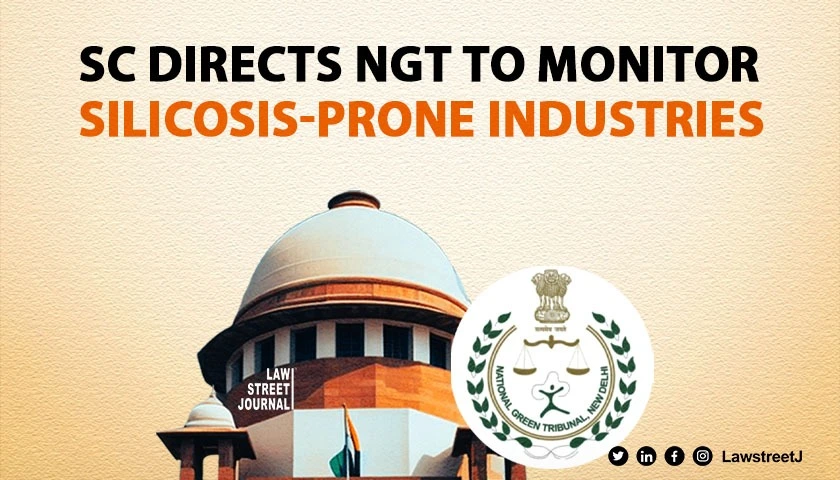NEW DELHI: The Supreme Court has directed the National Green Tribunal to oversee the impact of silicosis prone industries and factories across India.
A bench of Justices Vikram Nath and Prasanna Bhalachandra Varale directed the NGT should ensure all those units which could not abide by certain minimal standards to prevent silicosis among their workers should face closure.
The court also asked the NGT to ensure that the Central and States Pollution Control Board complied with earlier directions issued by this court, concerning silicosis, a deadly occupational lung disease caused by the inhalation of silica dust.
Also Read: UP govt plans to cut 33k trees for Kanwar route, NGT seeks more details
The bench also directed the green panel to undertake additional necessary steps to prevent the spread of silicosis by such industries and factories.
The court also ordered the NHRC to oversee the process of payment of compensation to affected persons and their families across the respective states is carried out efficiently and without delay.
The bench issued its directions while hearing a writ petition filed by Peoples Rights and Social Research Centre (PRASAR) & others in 2006 for addressing the grave issue of Silicosis among workers in various industries across the country.
Silicosis is an incurable occupational lung disease caused by prolonged inhalation of silica dust and it has been rampant throughout India due to inadequate detection, monitoring, and remedial measures. It predominantly affected workers engaged in industries such as mining, construction, stone cutting, and sandblasting, where they are exposed to high levels of silica dust.
The petitioner represented by advocate Prashant Bhushan contended that the pervasive and unchecked prevalence of silicosis among workers in various industries constituted a violation of the workers’ fundamental rights under the Constitution.
"The NGT, established under the National Green Tribunal Act in 2010, is tasked with the expeditious disposal of cases related to environmental protection and the speedy implementation of decisions," the bench said.
The court said this writ petition was filed in 2006, prior to the establishment of the NGT, these matters could not have been presented before the Tribunal initially.















